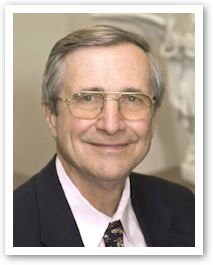Why do we sin?
“Seek what you seek, but it is not where you seek it. You seek Life in the place of death.” –St Augustine, Confessions

-by Peter Kreeft
BOLD = Aquinas, Summa Theologiae = ST
“All created perfections are in God. Hence He is spoken of as universally perfect (“all-perfect”), because He lacks not any excellence which may be found in creatures.
This may be seen from two considerations.
First, because whatever perfection exists in an effect must also be found in the effective cause . . . Since therefore God is the first effective cause of things, the perfection of all things must pre-exist in God in a more eminent way . . .
Second, from what has already been proved, God is existence (being) itself. Consequently, He must contain within Himself the whole perfection of being . . . Since therefore God is subsisting being itself, nothing of the perfection of being can be wanting to Him. Now all created perfections are included in the perfection of being, for things are perfect only insofar as they have being after some fashion. It follows therefore that the perfection of no being is wanting to God (ST,I,4,2).
Whatever is desirable, in whatsoever beatitude (happiness, joy), whether true (beatitude) or (even) false (i.e., merely apparent beatitude), pre-exists wholly and in a more eminent degree in the divine beatitude.
As to contemplative happiness, God possesses a continual and most certain contemplation of Himself and of all things else.
And as to that which is active, He has the governance of the whole universe. As to earthly happiness, which consists in delight, riches, power, dignity, and fame, according to Boethius (The Consolation of Philosophy III,10), He possesses joy in Himself and all things else for His delight: Instead of riches, He has that complete self-sufficiency which is promised by riches; In place of power, He has omnipotence; For dignities, the government of all things; And in place of fame, He possesses the admiration of all creatures (I,26,4, “Whether All Beatitude is Included in the Beatitude of God?”).(1)
“All sin, therefore, comes from a lack of faith—faith in this very fact, that God contains all perfections, not just some. God is not an option for “religious people”, whomever they are. God is the only game in town(2).”
“Here, in St. Thomas, is a powerful aid to obeying the first and greatest commandment. (“I AM the Lord thy God. You shall have no other gods before Me” -Ex 20:2-3. And, “You shall love the Lord, thy God, with ALL your heart, ALL your soul, and ALL your mind.” -Mt 22:37) It is the realization that every finite perfection we love and seek in the creation is to be found in an infinitely perfect form in God. What are we seeking in human love, in nature, in creativity, in thought? It’s desirable only because it’s a little like God. All that we love in creatures is a reflection of the Creator. There, and there alone, in Him, can we find everything we are seeking in them. The reflections of His perfections in the mirror of creation should send us away from the mirror, not into it. And when we run into the mirror, seeking our happiness there, the mirror breaks and our happiness shatters. For every truth is a reflection of His truth, every good is a reflection of His good, every beauty is a reflection of His beauty. The reflections are real, but they are only real reflections. They point back to the Reality they reflect. All truth is God’s truth. All goodness is God’s goodness. All beauty is God’s beauty. He must contain in Himself the whole perfection of being.
And therefore He is what we need, He is all of what we need, and He is the only One we need. For if we need something else besides God, something in addition to God, then God is not God.
There is a mystery about our desires: they have no limit! We are never totally and absolutely satisfied. Why? Because they are about God.
“The form (nature) of the Desired is in the desire.” St. Thomas means by that saying that there is no such thing as desire simply, desire with no specific object, desire for nothing, or for everything in general, for an abstraction. There is only desire for food, drink, sleep, truth, goodness, beauty, sex, love, friendship, etc. The form of the object of each desire is in the desire itself, and gives it its nature: desire for sex is sexual desire, desire for knowledge is curiosity, desire for friendship is loneliness.
And thus since the form of its object is in the desire itself, and since what we most deeply desire is God, the infinite source of all finite perfections, therefore the infinite nature of God is “in” this infinite desire for God, like a negative photograph, or like a silhouette. When your mother dies, your grief is a mother-shaped grief; when you lack God it is a God-shaped lack, a God-shaped (and God-sized) vacuum. The desire for God has no limit because its object (God) has no limit.
St. Thomas here simply explains, in philosophical language, St. Augustine’s beloved and famous saying that summarizes the whole meaning of life: “Thou hast made us for Thyself, and [that is why] our hearts are restless until they rest in Thee” (Confessions I,1).
How this frees us from worry! Jesus tells foolish, fussing Martha the startling good news that “There is only one thing needful!” (Lk 10:38-42). It’s Him. Mary knew that, and Martha didn’t, even though both loved Him. No thought more liberating, more simplifying, more unifying than that thought has ever entered into a human mind. Your life can be one. You can be one. You do not need to be torn apart, harried and hassled, bothered and bewildered. You can become one great person by having one great love.
For you are what you love. Your love is your destiny. Augustine says your love is your gravity (amor meus, pondus meum).
In speaking to Martha, Christ speaks to all of us. He sees us in her, and he wants to liberate us out of her confusions, her illusions, and her worries, and into Mary’s “one thing needful”. He is the One we need to seek, and find, and meet, and love, and serve in all things. Because everything we seek, every good, every happiness, every joy, every perfection, is There.”(3)
Love,
Matthew
(1) Kreeft, Peter (2014-11-28). Practical Theology: Spiritual Direction from St. Thomas Aquinas (Kindle Locations 605-622). Ignatius Press. Kindle Edition.
(2) Kreeft, Peter (2014-11-28). Practical Theology: Spiritual Direction from St. Thomas Aquinas (Kindle Locations 627-629). Ignatius Press. Kindle Edition.
(3) Kreeft, Peter (2014-11-28). Practical Theology: Spiritual Direction from St. Thomas Aquinas (Kindle Locations 634-663). Ignatius Press. Kindle Edition.

